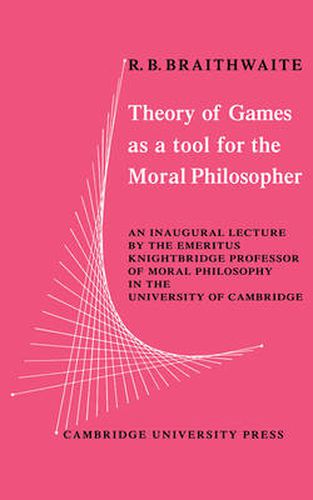Readings Newsletter
Become a Readings Member to make your shopping experience even easier.
Sign in or sign up for free!
You’re not far away from qualifying for FREE standard shipping within Australia
You’ve qualified for FREE standard shipping within Australia
The cart is loading…






It is a common complaint against moral philosophers that their abstract theorising bears little relation to the practical problems of everyday life. Professor Braithwaite believes that this criticism need not be inevitable. With the help of the Theory of Games he shows how arbitration is possible between two neighbours, a jazz trumpeter and a classical pianist, whose performances are a source of mutual discord. The solution of the problem in the lecture is geometrical, and is based on the formal analogy between the logic of the situation and the geometry of a parabola. But an appendix provides the alternative algebraic treatment of a general two-person collaboration situation.
$9.00 standard shipping within Australia
FREE standard shipping within Australia for orders over $100.00
Express & International shipping calculated at checkout
It is a common complaint against moral philosophers that their abstract theorising bears little relation to the practical problems of everyday life. Professor Braithwaite believes that this criticism need not be inevitable. With the help of the Theory of Games he shows how arbitration is possible between two neighbours, a jazz trumpeter and a classical pianist, whose performances are a source of mutual discord. The solution of the problem in the lecture is geometrical, and is based on the formal analogy between the logic of the situation and the geometry of a parabola. But an appendix provides the alternative algebraic treatment of a general two-person collaboration situation.